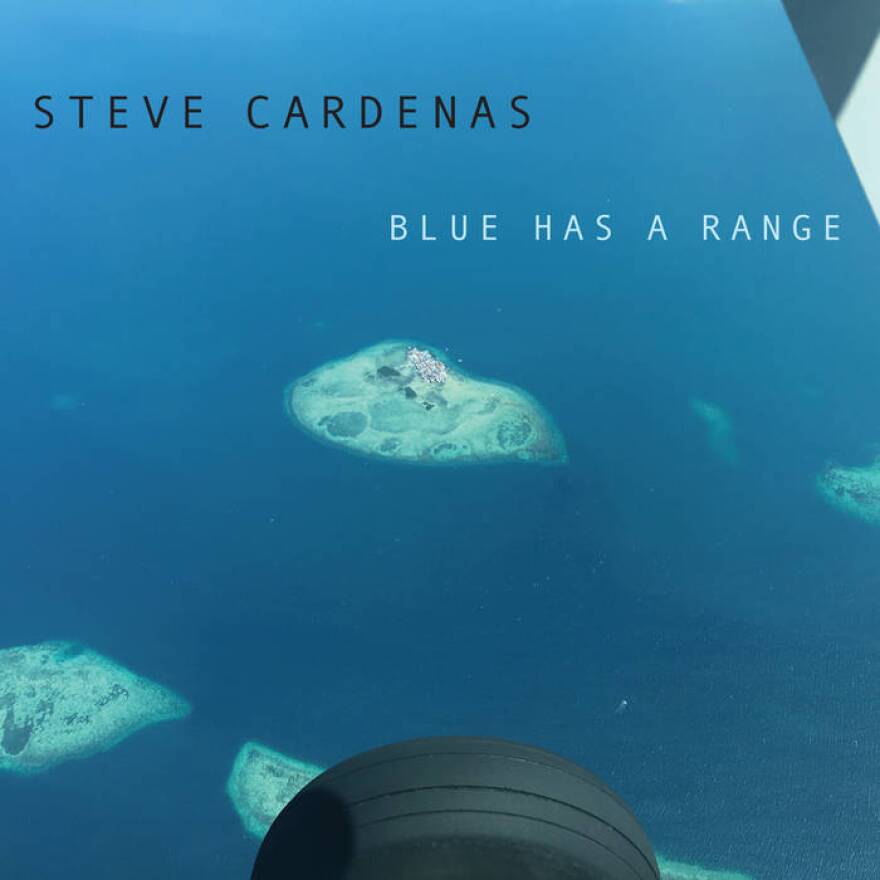Joshua Redman, Brad Mehldau, Christian McBride & Brian Blade, “Right Back Round Again”
RoundAgain — the radiantly absorbing new album by saxophonist Joshua Redman, pianist Brad Mehldau, bassist Christian McBride and drummer Brian Blade — represents both the resumption of an old bond and the refinement of a newer one. As we noted here when the album was announced, it’s the first album by these four musicians since MoodSwing, in 1994. The album is a stunner top to tail, but there’s something especially illuminating about its title track, “Right Back Round Again,” which Redman composed for the band.
As on a piece called “https://youtu.be/JqRsdzQ4bVc" target="_blank">Rejoice,” from MoodSwing, this is an uptempo tune that wears its gospel influence on its sleeve. But there’s also an underlying feeling of ease here — a sense that no matter how frenetic the pace may be, the performance is an expression of unhurried cool. And it makes an implicit point: these four may have come a long way, but they haven’t lost a step.
RoundAgain is available now on Nonesuch Records; listen here. On Wednesday, July 22 at 4 p.m. ET, join me and the band for a video premiere of their performance last fall at The Falcon, on the NPR Music YouTube channel.
Steve Cardenas, “Reflector”
The aforementioned Brian Blade also appears on a gemlike new album by guitarist Steve Cardenas, Blue Has a Range. It’s a collection of heartfelt new Cardenas compositions, and it also finds a place at the table for his regular collaborator Ben Allison on bass, and Blade’s frequent copilot, Jon Cowherd, on piano.

“Reflector” is one of the album’s warmer pieces, with an openhearted melody that isn’t so far out of range from Cowherd’s writing for the Brian Blade Fellowship. But as Cardenas makes clear, first in his initial framing of the theme and then in a brief but authoritative solo, this is his creation in every sense. He’s just playing to the strengths of his crew, and they’re responding in kind.
Steve Cardenas’ Blue Has a Range is out now on Sunnyside; order here.
John Hollenbeck, “Don’t Give Up”
Over the last several years, drummer and composer John Hollenbeck has been gradually rolling out a trilogy of albums, all made with the Frankfurt Radio Big Band, keyboardist Gary Versace, and a pair of shapeshifting, genre-agnostic vocalists, Theo Bleckmann and Kate McGarry. First came Songs I Like a Lot, in 2013, then Songs We Like a Lot, in 2015. The final installment, naturally titled Songs You Like a Lot, will be released on his new label, Flexatonic Records, next month.

As the title implies, it’s a collection of audience requests: songs like the Bee Gees’ “How Deep Is Your Love” and Joni Mitchell’s “Blue.” The tune above, “Don’t Give Up,” was a single off Peter Gabriel’s So, featuring guest vocals by Kate Bush. This version begins with a trumpet solo by Axel Schlosser, before McGarry and Bleckmann trade exhortations. (He sings the Kate Bush part, naturally.) There’s extravagant feeling in these vocal performances — and no small amount of impish humor, during the extended outro. (I won’t spoil it for you, but be sure to listen in stereo.)
Thumbscrew, “Composition No. 61”
Thumbscrew — the improvising collective made up of bassist Michael Formanek, drummer Tomas Fujiwara and guitarist Mary Halvorson — typically puts a premium on original music. But the trio demonstrated its interpretative flair on Theirs, an album released in 2018. Now comes The Anthony Braxton Project, a repertory album timed to the 75th birthday of that inexhaustibly creative composer and multi-reedist, a touchstone for every member of the group.

“Composition No. 61” is an early piece in the Braxton oeuvre, and something of a deep cut: according to this composition index, he never recorded it. (Along with a pictographic identifier, the piece bears this description: “Short thematic structure for one single-line instrument and piano.”) Thumbscrew plays the theme in an almost militaristic unison at first, before pulling apart into strands of abstraction. There’s clear reverence in this performance, but also a Braxtonian conviction in pursuing original expression.
Norah Jones, “Flame Twin”
Pick Me Up Off the Floor, the new album by Norah Jones, came about with no grand intention — as a compendium of singles that had been piling up, one after the other. The second track on the album is “Flame Twin,” which finds Jones on vocals and piano in some heavy company: Pete Remm on guitar, synthesizer, and organ; John Patitucci on bass; and Brian Blade, the MVP of this Take Five, on drums.
A new video for the song literalizes the mysterious twinning in Jones’ lyrics, as well as the flames. She appears in a two-toned wig, moving about a wooded area, often shadowed by a doppelganger. Does this imply that the language of pursuit in the song is an act of misdirection? Is this a song about the bifurcated self? Does it matter that Jones is an Aries, not a Gemini? I’m being facetious with the close reading, of course — what matters is the smoldering artistry in the song, which comes across loud and clear.







